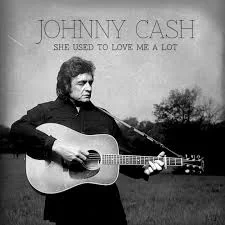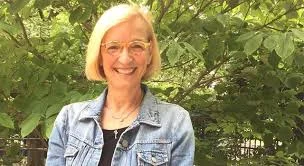A Songwriters Map
/iDoCoach Blog
You've no doubt run across the term 'writer's toolbox'. I've been at it a long time, and my toolbox is pretty crammed with things I've picked up along the way from co-writers, artists, authors, publishers, and friends. Tips filed away for when I need to find a fresh approach to songwriting. Lots of them were not originally intended for writing songs, but when you adapt 'em it could be the thing you need that day to get unstuck.
MInd Mapping
One of my go-to's is a technique called 'mind mapping'. I've brought it up to writers in coaching who know it through business as something else, but it's basically the same principle. You create a map over time, with all points leading to the destination.
Here's how my version works. I like writing from a title so let's have a little fun with it and say my title is I Murdered My Ex With an Axe. (Some songwriting workshops will tell you your title should never be more than 5 words...but humor me).
Stick It Good
Either on a white board or (my favorite) one of those large yellow sticky notes, put your title right in the middle of the page. Circle it.
Take the board or sticky note and put it somewhere where you'll see it often. Kitchen is great, maybe the bathroom! I always put mine somewhere other than where I normally write. Away from instruments and computers.
Leave it there until it fills up. Anytime you go by it, or you find yourself coming up with something that relates to the title, add it to with an arrow pointing toward the title. Leave lots of room for lots of arrows.
For instance; using my title I might walk by, look at the big circled title and think, 'a guitar is called an axe sometimes', and just write the word "guitar". Always with an arrow pointing to the target: the title.
Take Your Time
Don't try and fill the page in a day. Let your subconscious play with it. Anything and everything is fair game if it connects to your title. I've had some up for a month or more! Two days later you walk by in the morning and think 'murder was too good for her', another time 'no jury would convict', the next week on the way out the door, 'Axe = Acts, as in a book in the Bible'. You see where I'm going. It can be anything at all, nothing's too crazy. Just fill the page.
Pat Pattison has a terrific idea in one of his books on writing better lyrics. He talks about finding words that are "in the key of" your idea. That's another way to look at this, things that are in the family of, or relate to your title.
Again, give your subconscious time to kick the title around, no deadline. Just add as something comes to mind. When the page is full, pull it down and get to work. I know you're gonna find a bunch of arrows that will help you map the route to your lyric.
There are no rules when it comes to using your toolbox. Just a case of finding the right tool for the job sometimes. Mind mapping is a great way to have a little fun and take the pressure off when you're feeling like you've lost your way with your lyric.
Here's a link to an app that provides a simple approach to the same idea called "MindNode".
iDoCoach Blog
The picture above came from my friend and writing client Dave Henneberry, showing a few that he's currently working on.
Mark Cawley
2/22/16
Nashville, Tennessee
Photo: Shutterstock
Mind Map Photo: Dave Henneberry
if you'd like to stay up with iDoCoach including receiving the latest blogs and my favorite 7 Toolbox tips here ya go!
http://idocoach.com/email-newsletter
I'm currently coaching writers worldwide, online, one on one and taking new clients for the Fall. Visit my website for more info www.idocoach.com or write to me at mark@idocoach.com
Mark Cawley is a hit U.S. songwriter and musician who coaches other writers and artists to reach their creative and professional goals. During his decades in the music business he has procured a long list of cuts with legendary artists ranging from Tina Turner, Joe Cocker, Chaka Khan and Diana Ross to Wynonna Judd, Kathy Mattea, Russ Taff, Paul Carrack, Will Downing, Tom Scott, Billie Piper, Pop Idol winners and The Spice Girls. To date his songs have been on more than 15 million records. Mark’s resume includes hits on the Pop, Country, R&B, Jazz, and Rock charts and several publishing deals with the likes of Virgin, Windswept Pacific, and Steelworks/Universal. Mark calls on his decades of experience in the publishing world, as an artist on major labels, co-writer with everyone from Eliot Kennedy and Burt Bacharach to Simon Climie and Kye Fleming, composing, and recording to mentor clients around the globe with iDoCoach. He is also a judge for this years UK Songwriting Contest, New England Songwriter Search , West Coast Songwriting events, a contributing author to the USA Songwriting Competition and Songwriting Magazine, a judge for Belmont University's Commercial Music Competition, a popular blogger and, from time to time, conducts his own workshops.
Born and raised in Syracuse, NY, Mark has also lived in Boston, L.A., Indianapolis, London, and the last 20 years in Nashville, TN.























